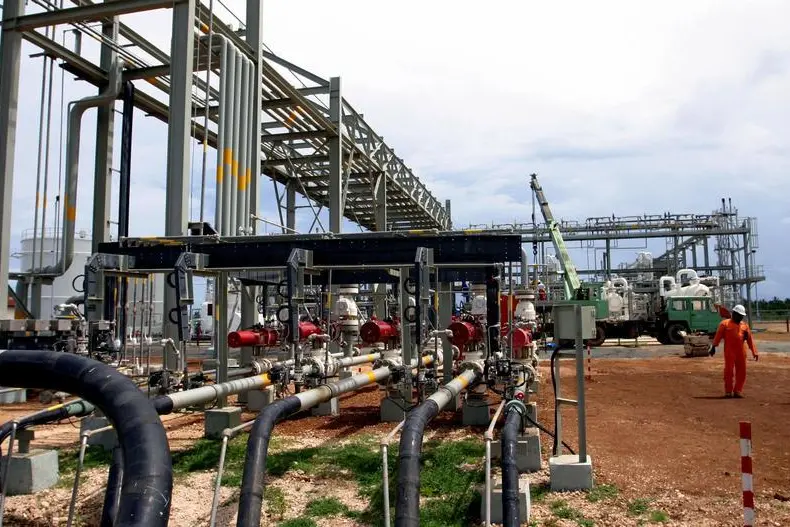PHOTO
* U.S. and European majors have held talks for joint initiative Exxon wants carbon tax to be revenue-neutral
* European majors acted together more quickly
LONDON, June 3 (Reuters) - The failed attempt by the world's oil majors to speak on climate change action with one voice has laid bare disagreement between U.S. and European companies on putting a price on carbon.
The world's top oil companies have struggled for years to form a joint front in the face of growing criticism for not taking leadership against climate change.
This week's letter calling for a global carbon pricing by Europe's Statoil
Setting a price for each tonne of carbon that emitters produce is meant to encourage companies to adopt cleaner technologies and shift away from using fossil fuels, primarily coal.
"While we have had discussions with European majors, and we wish them well, we don't believe we need to join this scheme," said Exxon Mobil Vice-President Robert Franklin at an industry conference in Paris on Tuesday.
Another source confirmed Chevron had also been approached to join the initiative but that there was no enthusiam for the proposal, saying a domestic U.S. agreement on carbon pricing was still "light years" away.
Nonetheless, Exxon Chief Executive Rex Tillerson said at an OPEC seminar in Vienna on Wednesday if a carbon tax was imposed it had to be revenue-neutral as most economies around the world are unable to shoulder the cost burden of a carbon tax.
Separately, Chevron and Exxon both work with trade group International Petroleum Industry Environmental Conservation Association (IPIECA) to develop a common position for climate change mitigation.
The IPIECA said on Tuesday it will put out a consensus view from its members on carbon pricing later this month.
"ALL IN IT TOGETHER"
For Europe's oil majors, under growing pressure to act against climate change, introducing carbon price systems where they are lacking is a more pressing issue.
At home, they are already subject to the European Trading System that puts a market price on every tonne of carbon emitted and ties national governments to legally binding targets to reduce emissions.
"We got together as a group in Europe very quickly and made a lot of progress in a short period of time," said BP Chief Executive Bob Dudley at the same event.
After months of discussions that started at the World Economic Forum in Davos in January and continued at a roundtable meeting of chief executives in Oslo, the European companies' joint statement was finally agreed at last month's meeting of the Oil and Gas Climate Initiative (OGCI) in Paris, a forum for oil majors created last year ahead of UN climate talks this December, sources said.
"There's a recognition that we're all in this together to support carbon pricing as an element of working towards fighting against climate change," said another source at one of the companies involved.
Total Chief Executive Pouyanne said he was still in talks with the two U.S. majors and that he hoped one of them would join the European initiative soon.
The OGCI, which includes oil companies from across the globe, is expected in the coming months to release a report on the group's action plan to combat climate change, sources said.
(Reporting by Oleg Vukmanovic, Michel Rose and Andrew Callus in Paris; Marc Jones, Ron Bousso and Karolin Schaps in London; Writing by Karolin , editing by William Hardy) ((karolin.schaps@thomsonreuters.com; +44)(0)(207 542 6622; Reuters Messaging: karolin.schaps.reuters.com@reuters.net))
Keywords: CLIMATE CHANGE/OIL MAJORS





















